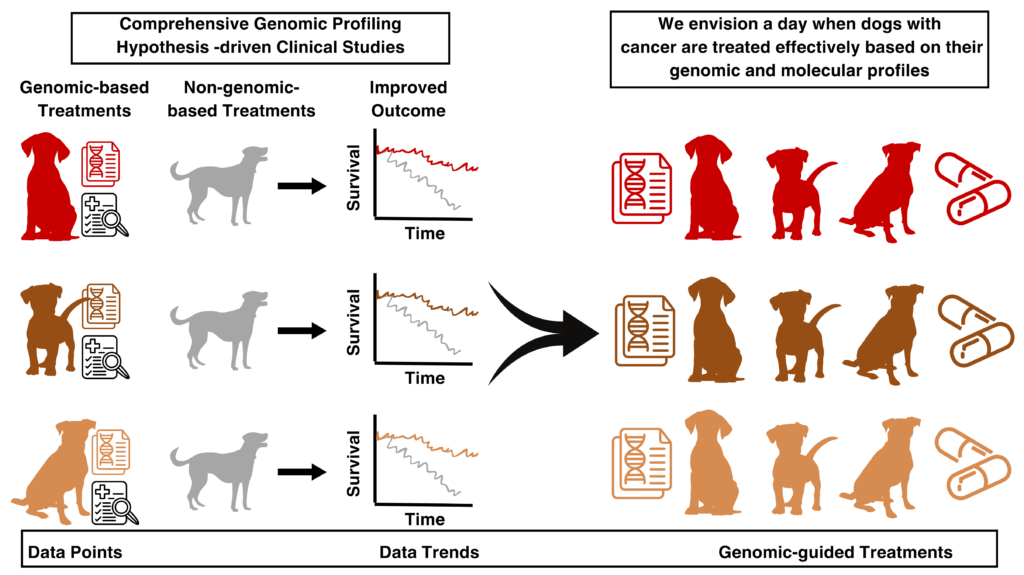Are Genomics-based Treatments Ready in Dogs?
Current Challenges:
Limited Genomic Knowledge: Canine cancers are primarily studied through human cancer models or focused gene profiling, resulting in a lack of comprehensive, unbiased genomic data specific to dogs.
Insufficient Clinical Data: There is minimal efficacy data for actual canine patients, and a scarcity of pharmacokinetic (PK), pharmacodynamic (PD), safety, and toxicity data in dogs, with most insights coming from healthy beagle studies.
Human-Derived Inferences: Current treatments heavily rely on biomarker-drug associations based on human data, with varying evidence levels ranging from preclinical studies to FDA-approved therapies.
Restricted Drug Access: Limited availability of advanced and reliable targeted therapies for dogs, with most existing options being early-generation inhibitors.
Our Approach:
Let data drive advancements: every case we manage contributes valuable insights to improve outcomes for the next dog.
Comprehensive Genomic Profiling: Canine CGP provides detailed, unbiased insights into the genomic landscape of every cancer type and each dog’s cancer.
Hypothesis-drvien Clinical Studies: Through comprehensive genomic profiling and real-world clinical data modeling, we validate the translational potential of human biomarker-drug associations to guide genomic-based treatments in dogs.
Advanced AI Modeling: We utilize AI to connect individual dog data points, uncovering complex patterns and trends across diverse genomic and clinical profiles, which will enable us to identify the most effective therapies for each type or subtype of cancer and individual dog.
Drug development and repurposing: Our genomic data and clinical data will guide the development of new drugs, or repurposing, or prioritization of existing drugs.

Vetomics transformed our approach to veterinary genomics with exceptional service and support.
